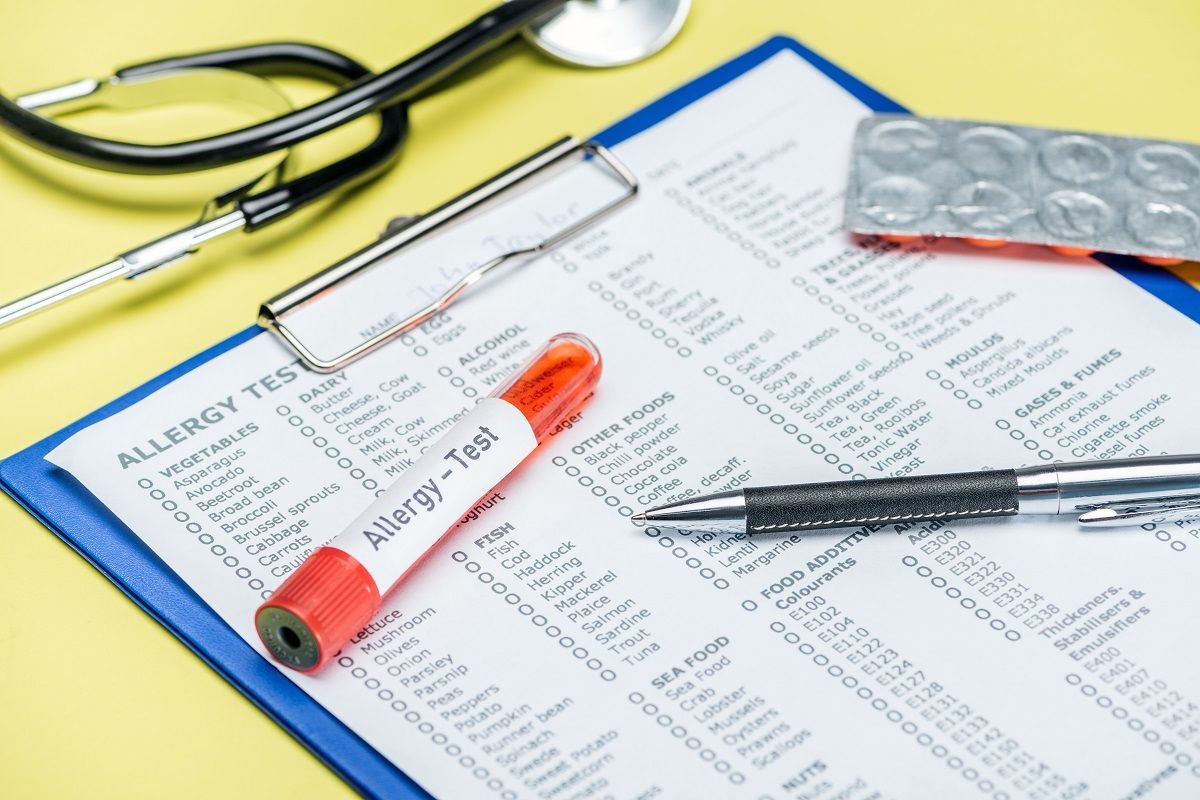Men's Health Month is Here!

History of Men’s Health Month
In 1994, The US Congress created Men’s Health Month in order to heighten the awareness of preventable health issues among males. The bill was created by the former Senator Bob Dole and Congressman Bill Richardson in order to increase awareness of health problems that can be prevented and help encourage early signs of diseases and treatment amongst men and boys. Men’s Health Month is celebrated during the same month as Father’s Day - June is a month full of opportunities to celebrate and honor men.
An Introduction
As mentioned earlier, June is Men’s Health Month. It is observed across the United States to help raise awareness about healthcare for men. It also encourages boys and men to practice and implement healthy living lifestyles by eating healthy and exercising.
In 2015, The most common types of cancer in males are lung cancer, prostate cancer, colorectal cancer and stomach cancer. In females, the most common types are breast cancer, colorectal cancer, lung cancer and cervical cancer.
Types of Screen Tests for Men:
Prostate Cancer: Next to skin cancer, prostate cancer is the second most common cancer found in American men. It’s a slow, gradual cancer, however, some are aggressive and fast-growing types of prostate cancer. Screening tests can help detect early signs of symptoms.
Tests for Prostate Cancer:
- Digital Rectal Exam
- Prostate Specific Antigen
Testicular Cancer: This rare cancer develops in a man’s testicles where reproductive glands produce sperm. Most men who experience testicular cancer are between 20 to 54 years old. Men with a family history of testicular cancer and undescended testicles are at a much higher risk - that is why the American Cancer Society recommends that all men have a testicular exam annually.
Colorectal Cancer: The most common cancer that causes death among millions of people worldwide is colorectal cancer, also known as colon cancer. Men are more at risk than women. Colon cancer develops when colon polyps start to grow on the inner surface of the colon. Once the colon polyps develop, it can invade and spread all over the body. The best way to prevent colon cancer is to find and remove the polyps before they become life-threatening.
Tests for Colon Cancer:
- Colonoscopy
- Flexible sigmoidoscopy
- Virtual colonoscopy
- CT Scan
- Double contrast barium enema
Skin Cancer: Melanoma is the most dangerous form of skin cancer. Older men are more likely to develop melanoma than women of the same age. The risk of skin cancer (melanoma) increases throughout a lifetime exposure to the sun and/or tanning beds. Sunburns can also accelerate the risk.
Tests for Skin Cancer:
- You can check in front of the mirror for any changes in marks on your skin - check the shape, color, and size.
- A skin exam can also be conducted by a dermatologist during your annual exam.
Hypertension (High Blood Pressure): The risk of high blood pressure increases as a person ages. Also, the risk becomes higher when a person is overweight and has an unhealthy lifestyle. Hypertension can lead to life-threatening complications such as aneurysm, heart disease, stroke, and kidney failure. Make sure your blood pressure gets regularly checked so that you can manage it right away. If you compare men and women who are between 40 and 70 years old, men are more prone to high blood pressure than women.
Test for Hypertension:
Blood pressure readings is the best way to know your blood pressure. Normal blood pressure is less than 120/80. High blood pressure is 130/80 or higher. If your blood pressure is high, it’s important that you see a doctor right away.
Cholesterol Levels: High levels of LDL cholesterol in the blood causes sticky plaque to build up around the walls of the arteries. If left untreated, it may lead to a heart attack or stroke. A healthy lifestyle can reduce “bad” cholesterol and lower the risk of any cardiovascular disease. For most men, the risk of getting high cholesterol starts in their 20s and progresses as they age especially if they don’t have a healthy lifestyle and eating habits.
Test for Cholesterol Levels:
- Fasting blood lipid panel blood test
Type 2 Diabetes: About one-third of Americans who have diabetes don’t know they have it. When diabetes isn’t controlled, it can lead to heart disease and stroke, kidney disease, blindness from damage to the blood vessels of the retina, impotence, and nerve damage. When detected early, you can avoid the progression of diabetes by a healthy diet, exercise, weight loss, and appropriate medications.
According to the Centers for Disease Control and Prevention, only 11.2 percent of women have diabetes while men have been estimated to be 13.6 percent. Obviously, men develop diabetes slightly more often than women. The American Diabetes Association noted that the reason for this is because men ignore their health issues more than women.
Tests for Type 2 Diabetes:
- Fasting blood sugar test
- Glucose tolerance test
- AIC
Human Immunodeficiency Virus (HIV): HIV is the virus responsible for AIDS. Most of the time, there are no symptoms. HIV runs in the blood and other body secretions of infected individuals. There is still no cure or vaccine for HIV.
Tests for HIV:
- ELISA or EIA blood test
- Western blot assay
Glaucoma: Glaucoma is an eye disease that slowly damages the optic nerve and can lead to blindness. It is estimated that over 3 million Americans have glaucoma, but only have of those people are aware that they have it. And there aren’t really any symptoms to warn someone that they have it, which is likely why there is such a high percentage of people who don’t know they have it. However, there is a glaucoma screening available that can be done to check whether or not you have it.
Here’s How You Can Celebrate Men’s Health Month
The month of June just kicked off, and it’s time to celebrate and participate in Men’s Health Month. Need ideas? Here’s what you can do to support all the important men in your life:
Encourage them to get physical. There are a lot of benefits that come along with participating in physical activities. Many men may find it difficult to find the motivation to take part in an exercise routine, or some sort of physical activity, on their own. If your dad, uncle, husband, or loved one seems to show no interest at all in doing any type of physical activity, why not join them? This is way better than just telling them what to do and waiting to see whether or not they actually do it.
Encourage them to get a physical. Most of the factors that could compromise the health of a man are preventable. And prevention starts with looking for a healthcare professional who can constantly check your overall health. Adult men aren’t as health-conscious as adult women, so you really need to push your male loved ones to get screening tests so that they are aware of their health status.
Let them know you care. One of the many reasons why men don’t get themselves checked out as often is because they’re probably too busy taking care of and providing for others. When you were younger, your dad probably worked late nights or overtime so that he could buy that bike for you that you really wanted. And your fiancé is probably working overtime to afford your dream wedding. This month, that you care about them and their health just as much.
Wear something blue. For the whole month of June, especially during Men’s Health Week which is June 10-16th, wear something blue to show your support for this month’s celebration.
Final Thoughts
There’s so much you can do celebrate and show your support of Men’s Health Month. However, the important thing to focus on this month is men’s health - you can take the first step by having yourself or the men in your life checked out this month. And guess what - most doctors will actually be providing discounted services (some are even offering free services!) to all boys and men.
Here at DrCatalyst, we’ll celebrate with you! Get Started.
Useful Links
DrCatalyst | All Rights Reserved.













